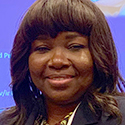|
CPSA USA 2019
Clinical and Pharmaceutical Analysts United:
Human Wellbeing is Our Responsibility
Updated December 3, 2019
Monday OCTOBER 28
7:30 am
Princeton Lobby
2nd Floor
Registration Open
Coffee and Continental Breakfast
Short Courses
All short courses are held at the Sheraton Bucks County Hotel
8:30 am - 4:00 pm
Princeton I
8:30 am - 4:00 pm
Princeton II
12:00 pm - 4:00 pm
University Grille
12:00 pm - 4:00 pm
LaSalle
7:30 am - 9:30 am
Makefield Highlands Golf Club, Yardley, PA
10:00 am - 3:00 am
Makefield Highlands Golf Club, Yardley, PA
12:30 pm - 4:30 pm
Villanova
USER MEETING
Molecular Discovery Users Meeting
Discussion Leader: Ismael Zamora, Molecular Discovery
4:30 pm - 5:30 pm
University I/II
Executive Roundtable
Where Technology and Solutions Meet Business
Leveraging Diversity and Inclusion for Better Business Outcomes
Discussion Leaders: Lucinda Hittle, Merck; Emily Ehrenfeld, New Objective
Planning Meeting Notes - May 2, 2019
Discussion Questions:
- What do you define diversity and inclusion?
- What makes you different/unique/distinctive?
- What do you feel you bring to the table? Others?
- What life lessons have others taught you?
- What are some examples of successful diversity and inclusion initiatives you have experienced?
- Unsuccessful?
Panelists:
Brad Ackermann, Eli Lilly & Co.
Mark Arnold, Covance
Lori Bachmann, VCU Health System
Amanda Berg, New Objective
Stephanie Cape, Covance
Suzanne Cordovado, Centers for Disease Control & Prevention
Carla Cuthbert, Centers for Disease Control & Prevention
Binodh DeSilva, Bristl-Myers Squibb
Anahita Keyhani, Altasciences
Alla Kloss, Sanofi
Tim Olah, Bristol-Myers Squibb
Kayte Parlevliet, Trajan Scientific & Medical
Joanna Pols, Regeneron
Robyn Rourick, Genetech
Nalini Sadagopan, Agilent Technologies
Neil Spooner, Spooner Bioanalytical Solutions
And More…
6:00 pm - 9:00 pm
University I/II
Opening Reception & Sponsor's Dinner
Opening Remarks
CPSA Charitable Foundation
Distinguished Lecture Series

Integration of VAMS into Pediatric Research and Clinical Programs: What Have We Learned So Far?
Athena Zuppa
The Children's Hospital of Philadelphia
Tuesday OCTOBER 29
7:30 am - 8:30 am
University Foyer
Registration
Coffee and Continental Breakfast
7:30 am - 8:30 am
University I/II
GRADUATE STUDENT BREAKFAST
Discussion Leaders: Petia Shipkova, Bristol-Myers Squibb and Mike Lee, Milestone Development Services
CPSA offers a unique opportunity for a selected group of graduate students to directly interact with Industry leaders at the Graduate Student Breakfast event. Personal accounts and stories of individual journeys and professional development in a friendly and informal setting allow students to talk, share, learn, establish connections and plan their future careers.
8:30 am - 9:00 am
University I/II
Welcome & Opening Remarks
Opening Remarks - Disease is the Enemy!
Welcome

Mike S. Lee
Milestone Development Services
Format, Objectives, Opening Remarks

Timothy Olah
Bristol-Myers Squibb

Neil Spooner
Spooner Bioanalytical Solutions
9:00 am - 9:45 am
University I/II
Plenary Lecture
The Impact of Bioanalytical Decision Making on Patient Care

Dr. Lorin Bachmann
Co-Director of Clinical Chemistry
VCU Health System
Track 1: Symposium
From Nomination to Implementation – How New Conditions are added to the National Newborn Screening Panel. The Story of Spinal Muscular Atrophy
Discussion Leaders: Suzanne Cordovado and Carla Cuthbert, Centers for Disease Control and Prevention
Charting the Path for Spinal Muscular Atrophy Newborn Screening
Carla Cuthbert, Centers for Disease Control and Prevention
Navigating the Challenges of State Implementation of Newborn Screening for Spinal Muscular Atrophy
Suzanne Cordovado, Centers for Disease Control and Prevention
Track 2: Colloquium
Powering Future Clinical Testing with Longitudinal and Predictive Markers
Discussion Leaders: Erwin Berthier, Tasso Inc.; James Rudge, Neoteryx
Longitudinal personalised clinical testing offers huge benefits in catching perturbations in biochemistry before abnormal pathology is observed allowing early intervention. In recent years, there has been a huge interest in developing highly specific tests in the omics / novel biomarkers fields to allow the dream of personalised testing to supplant standard clinical tests. This session showcases 4 leaders in the field of personalised testing and how their research and potential assay deployments will help to revolutionise future healthcare.
Delivering Mass Spectrometry-Based Multiplexed Protein Biomarkers for Improved Patient Outcomes
Steve Pennington, University College Dublin
Predictive Inflammation Biomarkers
Ben Herbert, Sangui Bio
Track 3: Colloquium
Updates on the Road to Regulation for Biomarkers
Discussion Leaders: Brad Ackermann, Eli Lilly & Co.; Robyn Rourick, Genentech
Biomarker Qualification as a regulatory process and utilization of all biomarkers in the drug development process. What is required to qualify a biomarker? How it can be used? What are current regulatory guidelines and standards for submission of biomarker data?
The Biomarker Qualification Process at the FDA
Chris Leptak, FDA
Biomarker Assay Validation for Every Conceivable Situation: One Size Fits All!
Steven Piccoli, GlaxoSmithKline
Track 4: Colloquium
CACA and CPSA, The Winning Partners
Joint Session with Chinese American Chromatography Association (CACA)
Discussion Leaders: Naidong Weng, Janssen; Chuping Luo, Advanced Materials Technology
Using Superficially Porous Particle Technology for HPLC Method Modernization & Development
Stephanie Schuster, Advanced Materials Technology
Novel Strategy for Sensitive Analytical Method Development Based on HPLC-MS
Hongyue Guo, GlaxoSmithKline
Determining Cyclooxygenase Selectivity in Human Whole Blood Assay and Optimizing Assay Conditions Utilizing LC-MS/MS
Yifan Shi, Janssen
12:00 pm - 1:00 pm
University I/II
Sponsored Lunch & Roundtables
The Future of LC-MS!
Jeremiah Tipton, BioTech & OMICSx Solutions, LLC; Bernhard Nemec, Prolab Instruments; Neil Spooner, Spooner Bioanalytical Solutions; and Emily Ehrenfeld, New Objective
Let Them Eat Cake!
"Happy Birthday!"
1:00 pm - 3:00 pm
University Foyer
POSTER SESSION & Roundtables
Session Leaders: Mark Cancilla, Merck; Helene Cardasis, Thermo Fisher Scientific; Scott Hottenstein, GlaxoSmithKline; Wenkui Li, Novartis; Enaksha Wickremsinhe, Eli Lilly & Co.; Matthew Szapacs, GlaxoSmithKline; Thomas Mencken, GlaxoSmithKline
Feature Students:
Taylor Domenick, University of Florida
Allison Levy, University of Florida
Track 5: Symposium
Partnering with CROs for Positive and Effective Project Progression
Discussion Leader: Anahita Keyhani, Altasciences
Bioanalysis is integral to the drug development pathway. As bioanalytical outsourcing to CROs continues to increase in both volume and scope, bioanalytical support is evolving significantly beyond routine, small-molecule LC–MS. Biologics, biomarkers and new molecular modalities are a growing segment of drug-development pipelines, and bioanalytical CROs are keeping pace, transforming into centers of technological/scientific innovation and regulatory expertise. This session discusses strategies and best practices using case studies for partnering with CROs for positive and effective project progression.
Managing Bioanalytical Support Externally and Internally – Best Practices in Building Relationships through Communication
Lisa Borbridge, Allergan
A bioanalytical CRO is not just a service provider, but an extension of the internal team. As a Client, you need to build relationships, internally and externally, to ensure timelines are met. The best way to build those relationships is to communicate as much information as possible, as soon as possible. There is also the need to understand workflows, and taking the role of advocate wherever and whenever needed to keep programs moving forward.
How to Utilize the Expertise of your CRO
Joanna Gore, Appili Therapeutics
When working in a small organization, employees are frequently required to occupy multiple roles, some of which may be outside their direct area of expertise. In Clinical Research, many operational divisions assist in the planning, implementation and execution of a study. When a functional gap exists in-house, small organizations will often outsource work to a CRO to ensure successful completion of a study. Depending on the size of the organization, the services of multiple CROs may be engaged. This presentation discusses how to utilize the expertise of your CRO, and how to manage and integrate this knowledge when working with multiple CROs, to optimize the conduct and outcome of the clinical study.
Track 6: Colloquium
Biomarker Discovery and Quantitation
Discussion Leaders: Naidong Weng, Janssen Research & Development; Wenying Jian, Janssen Research & Development
Metabolic Profiling of the Cellular and Mitochondrial Dynamics by LC-MS
Yanping Lin, Janssen Research & Development
A Deconvoluted Proteomics for in Situ, Unambiguous Quantification of Cancer Markers in Patient-Derived Xenograft Models
Jun Qu, SUNY Buffalo
Anti-peptide Antibody Immunocapture-LC-MS/MS Strategy to Quantify PD-1 and PD-L1 as Clinical Biomarkers in FFPE Tissues for Immuno-Therapy Development
Naiyu Zheng, Bristol-Myers Squibb
Track 7: Colloquium
To Be Announced
Discussion Leaders: Sara Naseri, Qurasense; Søren Therkelsen, Qurasense
Track 8: Colloquium
Engaging Examples of Pharmaceutical Analytical Sciences Research
Discussion Leader: James Small, Merck
Enrichment of Relevant Oxidative Degradation Products in Pharmaceuticals with Targeted Chemoselective Oxidation
Kausik Nanda, Merck
Structure Elucidation and Mechanistic Interpretation of a Novel Rearranged Degradant and Subsequent Use as an Ultra Violet (UV) Relative Response Factor (RRF) Standard
James Small, Merck
Social Hour & Sponsored Workshops
WORKSHOP 1
Patient Centric Sampling for Pediatric Studies–
Practical Aspects of Implementation
Workshop Leaders: Neil Spooner, Spooner Bioanalytical Solutions; Enaksha Wickremsinhe, Eli Lilly and Company;
Joe Siple, New Objective; Athena Zuppa, The Children's Hospital of Philadelphia
Blood sampling from neonates and children is often fraught with difficulties. The event can be stressful, painful and difficult to perform. This Workshop will concentrate on the practicalities of pediatric blood sampling, whether in the clinical setting, or in the home. The focus will be on the requirements of the patient/caregivers, carers and clinical staff. The process for blood sampling and its associated challenges will be outlined in a brief presentation by Dr. A.J. Allen (Eli Lilly and Company), who has in-depth experience of pediatric sampling, with a particular focus on pharmaceutical clinical trials. This will then be followed by an open discussion where the needs of the different parties will be explored, based upon the experience of those attending. This discussion will be used to formulate an outline for best practice for pediatric blood sampling with current technologies and will also give an insight into potential future approaches.
This Workshop will be of benefit for medical professionals, those involved in running pediatric clinical trials, bioanalysts, blood sampling and analysis technology developers and anyone who has an interest in collecting high quality blood samples from children whilst minimising the impact of this process on them.
Towards NOT Exsanguinating or Overly Traumatizing Children in Research
Albert J. Allen, Eli Lilly & Company
WORKSHOP 2
A Story of Innovation and Translation: Advances in Plasma Aß Biomarkers for Alzheimer’s Disease
Accurate biomarker information is necessary to facilitate clinical trials of disease-modifying therapies for Alzheimer's disease, which are expected to be most efficacious at the earliest and mildest stages of the disease. Currently, only positron-emission tomography (PET) imaging and the measurement of amyloid-ß in cerebrospinal fluid are validated methods for identifying amyloid-ß deposition in the brain. Minimally invasive, cost-effective blood-based biomarkers are needed. Recently, Koichi Tanaka et al. (Nature. 2018 Feb 8;554(7691):249-254. doi: 10.1038/nature25456. Epub 2018 Jan 31) demonstrated the ability of amyloid-ß precursor protein (APP)669-711/amyloid-ß (Aß)1-42 and Aß1-40/Aß1-42 ratios to predict individual brain amyloid-ß-positive or -negative status. These biomarkers showed high performance when predicting brain amyloid-ß burden. The composite biomarker showed very high areas under the receiver operating characteristic curves (AUCs) in both data sets (discovery, 96.7%, n = 121 and validation, 94.1%, n = 111) with an accuracy approximately equal to 90% when using PIB-PET as a standard of truth. These test biomarkers were correlated with amyloid-ß-PET burden and levels of Aß1-42 in cerebrospinal fluid. These results demonstrate great potential utility of these research use only plasma biomarkers for predicting brain amyloid-ß burden at an individual level. This talk will review these innovative biomarkers as well as describe efforts to bring reliable and accurate testing services online in North America.
WORKSHOP 3
To Be Announced
Sponsor Hospitality & Evening Workshops
Imagine Summit
Building Tomorrow Today
Discussion Leaders: Kevin Bateman, Merck; Tim Olah, Bristol-Myers Squibb; Neil Spooner, Spooner Bioanalytical Solutions; Enaksha Wickremsinhe, Eli Lilly and Company
Welcome
Neil Spooner, Spooner Bioanalytical Solutions and
Emily Ehrenfeld, New Objective

Imagineer
Melanie Anderson
Merck
Advancing Therapeutic Protein Characterization with New Orbitrap-based Mass Spectrometers
Workshop Leader: Reiko Kiyonami, Thermo Fisher Scientific
Comprehensive characterization of therapeutic proteins remains challenging due to their complex and heterogeneous structure. Two new introduced Orbitrap-based mass spectrometers (Thermo Scientific™ Orbitrap Eclipse™ Tribrid™ Mass Spectrometer and Thermo Scientific™ Orbitrap Exploris™ 480 mass spectrometer) enable rapid structure characterization of therapeutic proteins through native and denatured MS intact analysis, subunit and top/middle-down analysis and peptide mapping. In this talk, we will provide a general introduction about these two new mass spectrometers and how their unique features, such as Proton Transfer Charge Deduction (PTCR) and High Mass Range MSn (HMRn) can help to facilitate fusion protein characterization and protein-drug characterization. Several analysis examples to demonstrate the improved sensitivity and robustness of the new mass spectrometers for accurate and reproducible routine native LC-MS screening of large sample set will also be introduced.
Wednesday OCTOBER 30
Registration Open
Coffee and Continental Breakfast
7:30 am - 8:30 am
University I/II
CPSA Four Corners Initiative breakfast
Discussion Leaders: Mark Arnold, Covance; Lorin Bachmann, Virginia Commonwealth University
Ongoing discussions since last year’s annual CPSA USA meeting as well as the CPSA Metabolomics event held this year in Atlanta have generated a clearer understanding of the next steps required to guide the development of cutting-edge technology into the clinic or home to improve personal health and overall wellbeing. This year, our evolving discussion will focus on a convergence point: data/data aggregation and standardization within the framework of key stakeholders in healthcare.
Download presentation
8:30 am - 10:00 am
University I/II
Symposium Session & Roundtables
Clinical Protein Analysis by Mass Spectrometry:
Current Capabilities and Future State
Discussion Leader: Brad Ackermann, Eli Lilly and Company
The use of mass spectrometry to quantify proteins in clinical specimens continues to gain traction by offering capabilities not available by other methods. At the same time, widespread adoption remains limited by cost and other factors. This session will examine current capabilities and the path to greater clinical utilization in two clinical areas: pharmaceutical development and CLIA. This session will frame the current state in each of these areas and generate an open dialogue on the best opportunities for future engagement.
Protein Biomarker Mass Spectrometry in BioPharma:
New Frontiers
Joseph Palandra, Pfizer
Clinical Proteomics in the Reference Lab:
Where Did All the Putative Biomarkers Go?
Chris Shuford, LabCorp
Clinical Proteomics in the Hospital Lab:
Meeting the Needs of Patients
Andy Hoofnagle,University of Washington
Track 1: Symposium
Enabling Mass Spectrometry-based Assays via Innovations in Sample Processing
Discussion Leader: Brian Musselman, IonSense, Inc.
Bead-Assisted Mass Spectrometry (BAMS™): Higher Order Immunoassay Multiplexing for Targeted Quantification and Biomarker Discovery
Vladislav Bergo, Jeffrey Silva, Sergey Mamaev, Camilla Worsfold, and W. Adam Hill of Adeptrix
Molecular Imaging in Preclinical Drug Discovery
B. Healey, Revolution Biosciences
Submicroliter Sampling for Ambient MS - Reducing Sample size for Improved Analyte Detection
B. Musselman, F. Li, and P. Liang of IonSense, Inc.
TRACK 2: Colloquium
Patient Centric Sampling Interest Group–
Achievements and Next Steps
Discussion Leaders: Erwin Berthier, Tasso; Søren Therkelsen, Qurasense; Joe Siple, New Objective, Neil Spooner, Spooner Bioanalytical Solutions
The Patient Centric Sampling Interest Group (PCSIG) is a not-for-profit, free membership, community led organisation which has the aim of enabling cross organisational cooperation around the development and implementation of novel technologies and approaches for the collection of high quality blood samples from human subjects for the quantitative determination of drug, metabolite and biomarker concentrations. The group was founded at a CPSA USA meeting in 2017 and is composed of >90 members from over 50 organisations, with backgrounds including technology companies, instrument and consumable vendors, pharmaceutical companies, contract research organisations, publishers, central laboratories, academics and independent consultants.
This session will give attendees an introduction to the PCSIG, an update on current activities and will discuss potential future collaborative efforts for the group, including an independent clinical trial into the use of these novel technologies.
Track 3: Colloquium
Self-Innovation Strategies
Discussion Leaders: Lucinda Hittle, Merck; Liz Pierson, Merck
Track 4: Colloquium
To Be Announced
12:00 pm - 1:00 pm
University I/II
Sponsored Lunch & Roundtables
High Throughput Plasma Proteomics Pipeline: More Proteins from Less Plasma
Benoit Fatou, Boston Children’s Hospital/Harvard Medical School
Introduction to the Shimadzu MALDImini-1:
The First Commercially Available Compact Digital Ion Trap Mass Spectrometer
Mohamed Boutaghou, Shimadzu Scientific
Social Hour & Sponsored Workshops
WORKSHOP 1
The Future of LC-MS: High Performance Redefined
High Performance: Simple, Easy, Scalable
Emily Ehrenfeld, New Objective
High Performance: Integrated Solutions
Neil Spooner, Spooner Bioanalytical Solutions
High Performance: Education and Specialized Training
Jeremiah Tipton, BioTech & OMICSx Solutions, LLC
High Performance Redefined
Dan Spellman, Merck
WORKSHOP 2
Mitra® VAMS: From Sample Collection to Bioanalysis, What are the Remaining Challenges?
Workshop Leaders: Jeff Plomley and Anahita Keyhani, Altasciences
The increased adoption of Mitra® VAMS technology for supporting low-volume blood collection in clinical studies may be attributed to the elimination of the HCT effect biasing sampling volume, coupled with the ease of device implementation. However, additional downstream bioanalytical challenges remain, such as age-related extractability and recovery bias linked to blood HCT. Solutions to these bioanalytical challenges shall be addressed by Jeff Plomley in his presentation detailing the application of Impact-Assisted Extraction to Mitra® microsamples as a novel, and potentially universal, sample preparation approach. In addition, Altasciences will share their recent results evaluating the Tasso On-Demand "anywhere, anytime" pain-free blood sampling device, supporting the industry drive towards patient centricity.
Following the presentation, an open discussion shall follow where participants can share their experiences and challenges incorporating Mitra® technology into their microsampling programs, from sample collection to bioanalysis. By leveraging the combined expertise of all workshop members, the remaining "pain-points" associated with Mitra® technology can be identified and potential solutions derived to facilitate continued implementation of the technique.
The Workshop is expected to benefit key stakeholders involved with Mitra® VAMS technology, including technology developers.
WORKSHOP 3
Mass Spectrometry Trends in Clinical Research
Zhaoxiang (Sean) Wu, Thermo Fisher Scientific
Over the last decade, liquid chromatography coupled to mass spectrometry (LC-MS) has gained widespread popularity and transitioned from research applications to more routine clinical environment. While triple quadrupole mass spectrometers combined with liquid chromatography (LC-MS/MS) are used extensively for targeted, selective and sensitive quantitation. However, there is a growing demand for one single MS platform that can efficiently perform a multitude of assays – from routine quantitation of analytes to screening, confirmation, and characterization of unknown analytes (ranging from small to large sizes). As a result we observe increasing demands for ready-to-use complete kits for small molecules running on high resolution instruments.
LC-MS based assays for clinical research and forensic toxicology demand high degree of efficiency – from identification and confirmation of analytes with high resolution accurate mass spectrometry to sensitive, robust, reliable quantitation with triple quadrupole mass spectrometry. In this presentation, we shall offer a comprehensive overview of different LC-MS platforms and applications that can be leveraged for clinical research applications regardless of matrix complexity, type of molecules, and user expertise.
WORKSHOP 4
To Be Announced
TRACK 5: Colloquium
Biomarkers and Business of Science:
Fueling the Disruptive Innovation
Discussion Leaders: Arkady Gusev, Novartis; Olga Kavetskaia, Pfizer
Biomarkers and Business of Science: Fuelling the Disruptive Innovation”
This session continues to build on 2018’s CPSA session theme on “The Business of Science”. This year we focus on leveraging CRO experiences for biomarker analysis in clinical studies including using cutting edge technologies, operationalizing of complex clinical biomarker strategies and CRO-Pharma partnership models.
Efficiently Quantifying Peripheral Blood-Based Proteins for Clinical Trials: Recent Case Studies of Pharmacodynamics, Prognostic, and Predictive Biomarkers of Drug Response
Dominic Eisinger, Myriad RBM
The Nuts and Bolts of Making Complex Biomarker Strategies Work in Clinical Trials
Chad J Briscoe, PRA Health Sciences
Can a CRO Select its Pharma Clients?
Roger Hayes, ICON
Track 6: Colloquium
Women in Science and Technology
Discussion Leaders: Kayte Parlevliet, Trajan Scientific & Medical and Robyn Rourick, Genentech; Suzanne Cordovado, Centers for Disease Control and Prevention; Amanda Berg, New Objective; Alla Kloss, Sanofi; Lucinda Hittle, Merck; Emily Ehrenfeld, New Objective
This facilitator led workshop will focus on discussing the role of women in science and technology and how we all as individuals can contribute to promoting and progressing this important cause in our own careers and lives.
Track 7: Colloquium
Frontiers of Innovation, Technology and Solutions
Discussion Leaders: Alla Kloss, Sanofi and Ganesh Moorthy, Children's Hospital of Philadelphia
Challenges to Personalized Antimicrobial Dosing in Pediatrics: How Microsampling Can Help Us Move from Therapeutic Drug Monitoring to Management
Kevin J. Downes, The Children’s Hospital of Philadelphia
Real Time Therapeutic Drug Monitoring: Is This a Reality or Just a Dream?
Ganesh S. Moorthy, The Children's Hospital of Philadelphia
The Surprising Value of Real World Data
Arthur H. Combs, MC 10, Inc.
TRACK 8
Steven A. Hofstadler Graduate Student Session
Inspiring Career Paths for Young Scientists
Session Leaders: Petia Shipkova, Bristol-Myers Squibb and Emily Ehrenfeld, New Objective
Mentors
Student Presenters:
A Photocleavable Surfactant for Top-Down Proteomics
Kyle Brown, University of Wisconsin
Trends from >15,000 Assigned Fragment Ions in Top-Down Mass Spectrometry
Ashley Ives, Northwestern University
Rapid Analysis of Tryptophan Metabolites in Serum Using Wide-Isolation Strategies for UHPLC-HRMS/MS
Vanessa Rubio, University of Florida
Ion Mobility of Cationized Complexes for Enhanced Separation of Isomeric Species
Allison Levy, University of Florida
Use of Ultrahigh Pressure and Multidimensional LC-MS for Lipidomics
Matt Sorensen, University of Michigan
3:45 pm - 5:30 pm
Princeton I/II
VENDOR SESSION
5 Minutes of Fame - "5MOF"
Session Chairs: Mark Hayward, ITSP; Jeremiah Tipton, BioTech & OMICSx Solutions
This is the unique, totally one of a kind exhibitor session at CPSA. There are no rules other than the 5 minute time limit and presenters are actively encouraged to make it fun. As a result, presenters tend to bring their A-game in entertainment and try to make it memorable.
How to Overcome Challenges in Antibody Purification with Automation
Andrew Lee, Integrated Micro-Chromatography Systems
Myriad RBM – Your clinical trial protein biomarker experts
Troy Tremaine, Myriad RBM
Exploris 480 Mass Spectrometer: Extraordinary Simplified
Jerry Pappas, Thermo Fisher Scientific
Stable Isotope-Labeled Products: From the Ground Up
Dan Dennehy, Cambridge Isotope Labs
Importance of Size in Liquid Chromatography on Humanity
Jennifer Copeland, VICI
Breaking the Throughput Sound Barrier with Echo MS
Melanie Juba, SCIEX
Because Life is Everything
Jeff Plomley and Anahita Keyhani, Altasciences
Back to the Future (of LC/MS)
Bernhard Nemec, Prolab Instruments
2019: A UHPLC Odyssey – The Development of Analytical Intelligence
Eric Manning, Shimadzu Scientific Instruments
The Future of LC-MS!
Jeremiah Tipton and Neil Spooner, New Objective
5:30 pm - 6:30 pm
University I
University Foyer
Social Hour & Exhibition
Munch, mix and mingle with our sponsors and vendors
6:30 pm - 7:30 pm
University II
CPSA Dinner, Announcements & Awards
Announcements
Local ACS Discussion Groups
CPSA Announcements & Upcoming Events
Steven A. Hofstadler Graduate Student Awards
Petia Shipkova, Merck and Emily Ehrenfeld, New Objective
Program Chair Recognition
Mike Lee, Milestone Development Services
CPSA USA 2020 Program Chair Announcement
Timothy Olah, Bristol-Myers Squibb
Neil Spooner, Spooner Bioanalytical Solutions
7:30 pm - 9:00 pm
University II
Keynote Lecture
Distinguished Analytical Scientist Award
Keynote Lecture

Strategic Plan for Implementing Change
Dr. Carla Cuthbert
Chief, Newborn Screening & Molecular Biology Branch, Centers for Disease Control and Prevention
Distinguished Analytical Scientist Award
Introduction and Presentation of Award
Todd Gillespie, Eli Lilly & Company
Jim Stephenson, Thermo Fisher Scientific
Download Introduction Presentations

Tools and Technologies to Push the Bioanalytical Envelope
Dr. Richard Yost
University Professor and Head of Analytical Chemistry, University of Florida
Thursday OCTOBER 31
7:30 am
Princeton Lobby
2nd Floor
Registration Open
Coffee and Continental Breakfast
7:30 am - 8:30 am
Princeton I/II
Women in Science & Technology Breakfast
Discussion Leaders: Amanda Berg, New Objective and Suzanne Cordovado, Centers for Disease Control and Prevention
Please join us for an invigorating breakfast discussion centered around mentoring and how it can be used to encourage and promote Women in Science and Technology. Through the sharing of personal experiences – storytelling – we will explore the role and power of mentoring, the evolution of mentoring needs over one’s career and identify different approaches used by successful women.
8:30 am - 10:00 am
Princeton I/II
Colloquia & Roundtables
PK LCMS BMV in a FFP World
Discussion Leader: Steve Lowes, Q2 Solutions
The term ‘regulated bioanalysis’ is typically ascribed to quantitative determination of drugs and their metabolites in support of pharmacokinetic (PK) studies. In this sense, liquid chromatography-mass spectrometry (LCMS) has been the favored tool of bioanalysts contributing the development of small molecule drugs for over 20 years. Amazingly it is still the technique of choice for such analytes however the modern practitioner of bioanalysis is well advised to be looking at what is coming soon if not already upon us. Drug modalities, analytical technique/technologies and fundamental approaches to disease treatment are presenting new needs and opportunities that must be addressed. Establishing assays that are ‘suitable for intended use’ has historically abided by bioanalytical method validation (BMV) guidance but such a priori guideline themselves are debatably insufficient or inappropriate for the challenges presented to today’s bioanalysyts. Some regulatory guidance have anticipated the current and future needs with reference to fit-for-purpose (FFP) approaches while others continue to evolve around a narrower scope of application. In any case, the modern bioanalyst needs to be able to adapt and defend the science that supports the accuracy, precision, sensitivity, selectivity, stability and reproducibility of bioanalytical measurements. This session will explore some practical and rationale approaches to bioanalysis in the context of today’s needs that are not necessarily best served by traditional BMV approaches.
Using Real World Data to Inform Appropriate Acceptance Criteria for Hybrid Immuno-Affinity LC-MS/MS Assays
Rachel Basile, Genentech
Navigating the Unknown: Between Discovery BioA and Regulated (GLP) BioA
Adopting and Executing FFP Bioanalysis
Enaksha Wickremsinhe,Eli Lilly & Co.
TRACK 1: Symposium
The DAVINCI Project:
Development of Next Generation Analytical Technologies
Discussion Leader: Eugene Ciccimaro, Agilent Technologies
Download Presentation
This workshop style session guided by an expert panel will walk through the stages of vendor-industry collaborations. Our goal is to begin to answer the question: how can our community work together better to more quickly and successfully nurture collaborations leading to new analytical solutions to address today's challenges?
- Vendors should consider publishing in per-reviewed journals rather than application notes. Bioanalysis will support an all vendor author list.
- Collaborations should begin with clear and transparent criteria of success from both sides.
- Three-way CDA/NDAs are difficult, but the norm for CRO-Client-Industry relations. Is there a simplifier path?
- MS data sharing is practically difficult. Cloud resources often blocked by industry. Perhaps designating data sharing mechanism early is critical.
- Communication is key. Damage is done in the dark. Share news of progress and failed attempts.
Panelists and Presenters:
Carl Myerholtz, Agilent Technologies
Harsha Gunawardena, Janssen Research & Development
Jay Johnson, Pfizer
Jonathan Josephs, Sanofi
Jim Murphy, Waters Corporation
Tim Olah, Bristol-Myers Squibb
Scott Peterman, Thermo Fisher Scientific
Kayte Parlevliet, Trajan Scientific and Medical
Dan Spellman, Merck
Patty Sun, SCIEX
TRACK 2: Colloquium
Bioanalytical Considerations in Biological Therapeutics
Discussion Leaders: Xiaohui (Sophia) Xu, Bristol-Myers Squibb and Weifeng Xu, Merck
Biological drugs include monoclonal antibodies, antibody fragments (e.g., minibodies), antibody–drug conjugates, nonantibody protein drugs (e.g., growth hormones), peptide and nucleic acid-based drugs. With a sharp increase of biological drug candidates entering the drug development programs over the past decade, the demand for robust and sensitive bioanalytical assays as well as critical reagents to support bioanalysis in both nonregulated (exploratory) and regulated laboratory environment has been increasing. The critical role of bioanalytical support is highlighted by the fact that bioanalysis is required throughout an entire drug-development: from in vitro screening, pharmacokinetics, safety and efficacy biomarkers development, immunogenicity assessment to product release pharmacovigilance. In this session, challenges and considerations for bioanalytical support will be discussed, covering cell Therapy, Mass Spectrometry for Ummuno Assay, the importance of quality control of reagents as well as experiences in expanding reagent group.
Expanding Reagent Capability from BA Perspective in Supporting Growing Biologics Portfolio
Yang Xu, Merck
Bioanalytical Testing for Cell and Gene Therapy Pharmacokinetic Parameter Assessment Using PCR
Robert Dodge, Novartis
MSIA (Mass Spec Immuno Assay) and MFLC-MS/MS for the Bioanalysis of Humira from Human Plasma
Chad Christianson, Alturas Analytics
Reagent Consideration in Biologics Development
Jonathan Haulenbeek, Bristol-Myers Squibb
TRACK 3: Colloquium
Innovative Applications of Modern NMR Spectroscopy
Discussion Leader: James Small, Merck
Applying Hyperpolarization to Challenges in NMR
Sean Bowen, Merck
Studying Flexibility in Beyond Rule of 5 Space
Pablo Trigo Mouriño, Merck
NMR Applications in Polysaccharide Vaccine Development
Chengli Zong, Merck
12:00 pm - 1:15 pm
PrincetonI/II
Sponsored Lunch & Roundtables
Discussion Leader: Emily Ehrenfeld, New Objective
Cancer Metabolism
Shawn Davidson, Princeton University
TRACK 4: Symposium
Presentations from the Edge: Young Scientist Session
Discussion Leaders: Naidong Weng, Janssen R&D; Chuping Luo, Advanced Materials Technology
High Resolution Mass Spectrometry and Isotope Tracing to Probe Lipid Metabolism
Erik Allman, Penn State University
Sensitive Antibody Free Strategies for Targeted Protein Quantification in Biomatrices
Bo An, GlaxoSmithKline
Development of A Streamlined Workflow for Quantitative Analysis of Antisense Oligonucleotide (ASO) Therapeutics
Fengjian Shi, Biogen
TRACK 5: Colloquium
Innovator Session
Discussion Leaders: Mark Cancilla, Merck and Daniel Spellman, Merck
Biomeme’s Handheld qPCR Platform: Clinical and Pharmaceutical Implications
Ryan Ragland, Biomeme Inc.
Commercializing SLIM Ion Mobility for the Masses
Daniel DeBord, MOBILion Systems, Inc
Automated Methods and Software for Intact Biomolecule MS Analysis
Mark Hail, Novatia
CLOSING REMARKS & ADJOURN
Timothy Olah, Bristol-Myers Squibb
Neil Spooner, Spooner Bioanalytical Solutions
Mike Lee, Milestone Development Services
|